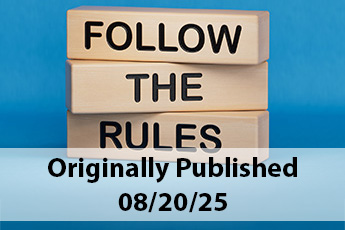The sinking of the Titanic in 1912 presented the maritime insurance industry with an unprecedented challenge. Insured for over £1MM by Lloyd’s of London, this was the largest maritime insurance exposure recorded at the time. The large payout, which was made within 30 days of the disaster, reflects the massive financial loss associated with the tragedy. It also emphasizes the vital role that insurance can play when things go wrong and the importance of safety and security regulations that prevent similar incidents.Several states — including Connecticut, Wyoming, Georgia, Nebraska, and Vermont — are permitting the licensing of financial institutions using novel, special-purpose, or uninsured bank charters. We look at this situation in more detail and explore what it might mean for the financial industry and community financial institutions (CFIs). Current State of PlayNovel banking charters are licenses that allow institutions to operate under state banking laws. They typically authorize an institution to engage in some, but generally not all, of the core banking activities of lending, payments, and deposit-taking. These charters are often granted to organizations with specialized or innovative models that don’t fit within traditional banking frameworks — such as fintechs, neobanks, and other organizations involved in payments or blockchain and cryptocurrency technologies. Many of these institutions offer specific financial services but don’t take retail deposits from the public; in these instances, they don’t need to be insured by the Federal Deposit Insurance Corporation (FDIC). Novel charters are also usually bound to a different regulatory framework, standards, and oversight compared to traditional banks. Examples of specialized financial institutions achieving novel charters:
- Banking Circle US, an organization that provides real-time global clearing and settlement for financial institutions, and Numisa, an organization that distributes US banknotes around the globe, have both been issued the uninsured bank charter in Connecticut.
- Two cryptocurrency exchanges, Kraken and Avanti, have received approval for the special purpose depository institution (SPDI) charter issued in Wyoming. The SPDI charter was designed specifically to create a regulatory framework that addresses digital assets’ unique characteristics and custody requirements.
Obtaining a Master AccountWhile achieving a state charter is one thing, some of these uninsured institutions may have another objective: access to a Federal Reserve master account. This allows them to use the central bank’s payment systems and reduces the need for third-party transactions. In 2022, in order to reduce risk and increase consumer protection and the safety of the banking system, the Fed issued revised and uniform guidelines to support the consistent evaluation of institutions with specialized or novel charters applying for master accounts. Since then, only one institution that doesn’t already have a federal regulator has been granted one — Numisma Bank, which was approved for a Fed master account this past May. Potential Impact of Special ChartersThere are several reasons states may choose to issue these novel charters, including to attract investment and talent into the region and to encourage economic growth and opportunity. These novel charters could encourage and promote new business models and innovation as well as growth for businesses that might not fit traditional banking frameworks. These businesses may be able to serve niche markets or offer specialized services — for example, cryptocurrencies — that are either not possible through, or are underserved by, traditional financial institutions. In those cases, these uninsured institutions benefit businesses and consumers by providing them with a wider range of service offerings. On the flip side, there are broader reservations across the industry around the potential risks of granting institutions with novel charters access to Fed master accounts and other benefits. The key issue is that these institutions may not be held accountable to the same regulatory requirements as traditional financial institutions. In addition, institutions that take uninsured deposits pose an additional risk to consumers and the wider financial system. There is also concern that the evolving regulations and standards associated with these novel charters can cause a level of uncertainty and confusion for stakeholders. The entry of these institutions into the banking space increases competition for CFIs in an already crowded market, potentially impacting market share and profitability. Some might argue that because these charters tend to have more simplified regulatory frameworks compared to traditional banking licenses, institutions are faced with reduced costs and fewer administrative and compliance requirements, and are handed an advantage and competitive edge. Looking Ahead The rise of institutions with novel banking charters introduces both opportunities and challenges. While these institutions can drive innovation and expand the range of financial services available to consumers and businesses, they also bring potential risks and uncertainties, particularly regarding regulatory oversight and consumer protection.CFIs can respond by reinforcing their strengths in areas where they have a competitive advantage, such as building deep, trust-based relationships with their customers and offering a broader suite of insured, traditional banking services. By staying informed about the regulatory landscape and the activities of novel charter institutions, they can strategically position themselves to compete effectively. Additionally, embracing technology and innovation within their own operations can help traditional institutions remain competitive in this dynamic environment.




